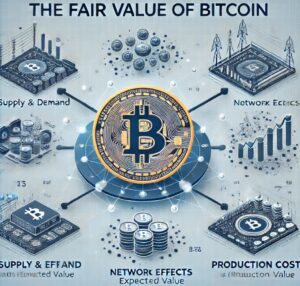How much truth is left in the BTC narrative?
4 min readTable of Contents
The promise of BTC is great: It is the first public and globally accessible payment infrastructure. For the first time in history, anyone can send value electronically without a central intermediary. For the first time, electronic financial infrastructures are inclusive, not exclusive. How the Internet has emancipated our electronic information – anyone can become a sender and receiver – BTC emancipates value infrastructures. So far so good. But what remains of the narrative of inclusion, of the wallet with a supralegal obligation to contract, in 2022 and beyond?
Banking the unbanked in practice
The added value of BTC is particularly important in countries with a weak financial infrastructure. In countries like El Salvador, Venezuela or in parts of Africa, there is therefore also an increased Crypto Establishment. However, this does not only refer to BTC, but to token infrastructures in general.
It is the wallet as an alternative to a bank account that is successfully establishing itself there and giving people who have previously been excluded new access to financial infrastructures. It is often about the digital US dollar or a US dollar stablecoin, which people prefer to BTC because of its popularity and lower volatility. One could put it cynically: The technology behind BTC contributes to the further dollarisation of some emerging and developing countries.
Tesla stock and college certificate as true game changers
However, the promise behind blockchain technology is much more than the public institutionalization of money infrastructures. These are just the tip of the iceberg, or the first point of contact. After all, a wallet is more than a bank account. It is also a securities account, credit clearing account and repository for NFTs or identity documents.
From university certificates to Tesla securities: In the sense of a leap forward innovation, a wallet can replace all old custody infrastructures and ensure greater equality of opportunity around the world. The decentralized value infrastructures, such as decentralized stock exchanges (DEX), are thus the most promising development program in recent years.
As an example, think of the thousands of people in Asia who have been able to make more money from NFT games like Axie Infinity than from traditional jobs. The accusation may be brought here that it would “only” be a blockchain game. But the example shows that thanks to blockchain, people can be part of the digital cross-border working world without having to rely on middlemen.
The countermovement
On the other hand, especially in the industrialized nations, we see a crypto service sector that is increasingly functioning according to the principles of the old financial world. In a way, this reverses the narrative of unconditional inclusion. Due to the regulations, not everyone can use every service. Again, it depends on where you’re from.
Regulation privatizes, at least in part, a public good. In turn, privatization lures with an attractive service portfolio, such as third-party custody or the delegation of staking services. One might assume here that it is in the interests of the state to regain more control. For this reason, the state is likely to prefer central crypto services, i.e. those provided by middlemen, to decentralized ones.
The regulatory disadvantage of decentralization
As long as there is sufficient freedom of choice among the users, this is basically not a problem at all. Some opt for the regulated and centralized variant and others for the purely decentralized option. A very promising model in terms of coexistence. However, there is concern that decentralized crypto applications will be increasingly disadvantaged compared to regulated ones.
Regulatory projects like MiCA in the EU, for example, could make it easier for a centrally managed stablecoin to get an exchange listing than a decentralized stablecoin like Maker’s Dai. This creates the danger that we will experience two crypto worlds that are less and less in exchange with each other. The user is thus increasingly being forced to decide which side he is supposedly on.
Do you prefer self-custody (non-custodial wallet) or prefer a third-party custodian? The bridges could be torn down more and more in the coming months. The narrative of inclusion or banking the unbanked can then only be applied to the crypto sector with restrictions.
It is all the more important to further optimize the user-friendliness of DeFi applications so that there is no two-class society.
The price of privatization
A corollary of crypto privatization is the emergence of new single points of failure. However, the blockchain economy should overcome this. The emergence of ever more powerful crypto companies, in turn, increases the danger that single point of failure can shake the entire sector. Be it the collapse of the lending market, see Celsius, or the hack of over 8,000 Solana hot wallets. Whether through your own fault or simply the victim of a cyber attack, the vulnerability of centralized infrastructures is becoming more evident these days than ever.
Decentralization is not always the perfect alternative and also has its disadvantages. Used sensibly, however, it can very well contribute to reducing the risk of default. This not only applies to financial and administrative matters, but also, for example, to infrastructures based on the Internet of Things (IoT). If more and more transactions are processed by more and more end devices, such as drones or autonomous driving, there are also increasing risks if individual interfaces or processing centers fail.
Based on the politically proclaimed technology neutrality, it would therefore be desirable to define a new neutrality towards organizational forms. This means that decentralized projects should not be de jure disadvantaged compared to central projects.






